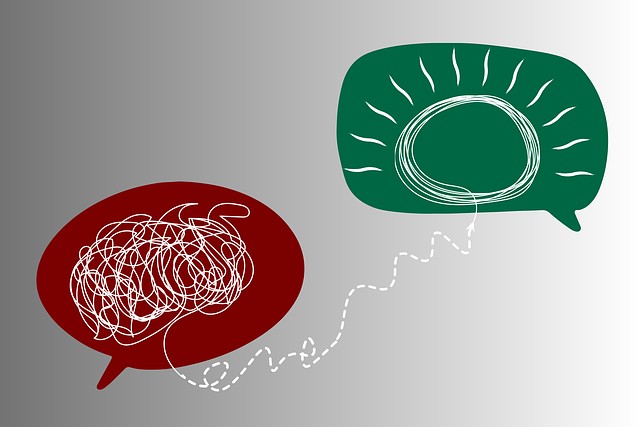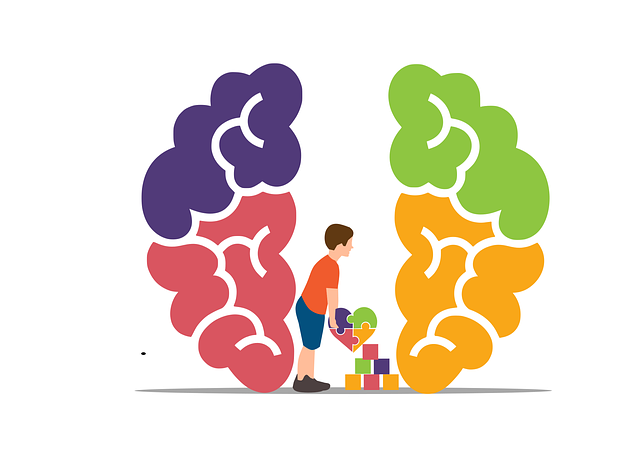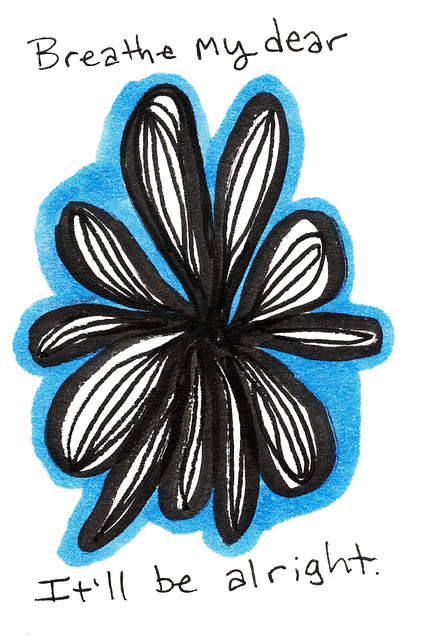Understanding your target audience is key to effective marketing strategies for mental wellness apps, especially those addressing specific needs like Englewood Chronic Pain Therapy. This involves considering demographics and psychographics to design tailored apps that resonate with users. The competitive market demands a multi-faceted approach, as seen in the Englewood Chronic Pain Therapy App, which combines personalized evidence-based strategies, interactive self-care tools, burnout prevention for healthcare providers, and emotional intelligence techniques. A robust multi-channel marketing strategy using social media, email campaigns, and content marketing, coupled with cultural sensitivity, user testimonials, and diverse representation, is essential to reach a broader audience seeking mental wellness solutions like Englewood Chronic Pain Therapy.
In today’s digital age, mental wellness apps are transforming lives, with one notable example being the Englewood Chronic Pain Therapy app. To unlock its full potential, understanding the target audience is paramount. This article delves into crafting a compelling unique value proposition for this app, leveraging multi-channel marketing strategies to effectively reach and engage users grappling with chronic pain. By exploring these aspects, we aim to enhance the app’s visibility and impact in the competitive wellness market.
- Understanding the Target Audience for Mental Wellness Apps
- Crafting a Unique Value Proposition for Englewood Chronic Pain Therapy App
- Multi-Channel Marketing Strategies to Reach and Engage Users
Understanding the Target Audience for Mental Wellness Apps

Understanding your target audience is a cornerstone when developing marketing strategies for mental wellness apps. The market for such applications is vast and diverse, catering to a wide range of users with varying needs and challenges. For example, apps focused on providing Englewood Chronic Pain Therapy services would target individuals suffering from chronic pain, aiming to improve their quality of life through digital interventions.
Marketing efforts should consider demographic factors, such as age, gender, and geographic location, but also delve into psychographic aspects like personality traits, values, and interests. This includes recognizing the importance of Mental Health Education Programs Design, fostering Emotional Intelligence, and incorporating Cultural Sensitivity in Mental Healthcare Practice to cater to diverse user backgrounds. By understanding these nuances, developers can create apps that resonate with their intended audience, ensuring effective engagement and improved mental wellness outcomes.
Crafting a Unique Value Proposition for Englewood Chronic Pain Therapy App

In the competitive market of mental wellness apps, crafting a unique value proposition is key. For the Englewood Chronic Pain Therapy App, this means focusing on features that differentiate it from other offerings. The app should emphasize its ability to provide personalized, evidence-based strategies tailored to individuals living with chronic pain, addressing not only physical symptoms but also the emotional toll associated with long-term illness.
By incorporating interactive tools for self-care practices and burnout prevention strategies specifically designed for healthcare providers—who often face significant emotional challenges in their work—the app can stand out. Additionally, leveraging emotional intelligence techniques within the app’s framework enables users to develop coping mechanisms that enhance overall well-being. This multi-faceted approach ensures that the Englewood Chronic Pain Therapy App offers a comprehensive solution beyond mere symptom management, catering to both the body and mind.
Multi-Channel Marketing Strategies to Reach and Engage Users

In today’s digital age, developing a robust multi-channel marketing strategy is essential to reach and engage users seeking mental wellness solutions, such as Englewood Chronic Pain Therapy. Platforms like social media, email campaigns, and content marketing can effectively communicate the benefits of apps focused on stress management and self-esteem improvement. By leveraging these channels, mental health app developers can build a strong online presence and connect with diverse audiences.
Cultural sensitivity in mental healthcare practice is another critical aspect to consider when crafting these strategies. Tailoring marketing efforts to resonate with different cultural backgrounds ensures inclusivity and trust. Incorporating user testimonials, highlighting diverse representation in app design, and emphasizing evidence-based practices can attract a broader spectrum of users seeking support for their mental wellness journeys.
Marketing a mental wellness app, such as the Englewood Chronic Pain Therapy App, requires a deep understanding of the target audience and a compelling value proposition. By leveraging multi-channel marketing strategies, developers can effectively reach and engage users in need of chronic pain therapy. Focusing on user-centric benefits and utilizing relevant SEO keywords like “Englewood Chronic Pain Therapy” can significantly enhance visibility and attract the right audience, ultimately contributing to improved mental wellness outcomes.














